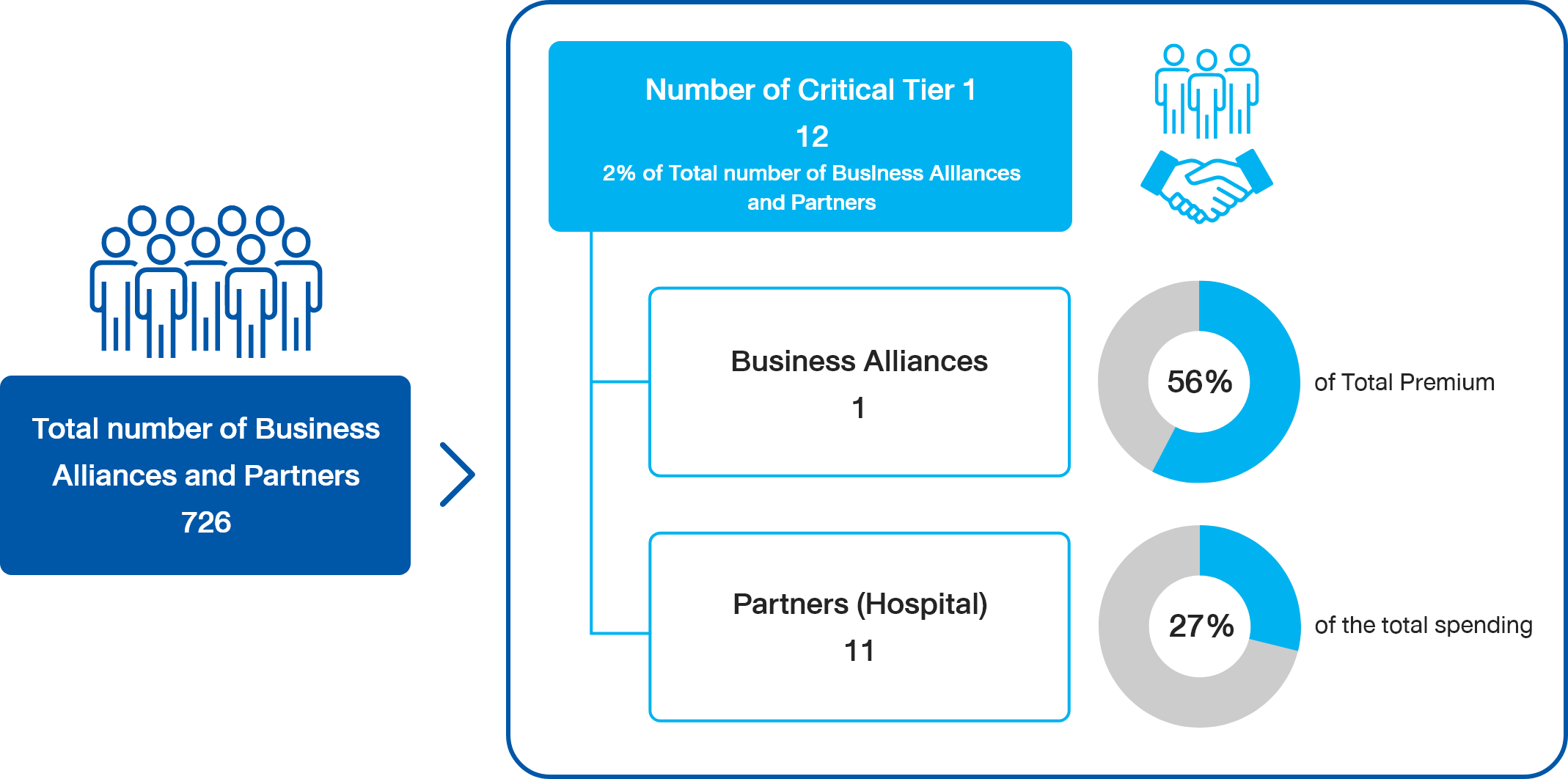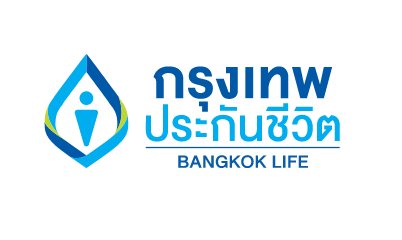Supply Chain Management
Code of Conduct for Business Partners
Bangkok Life Assurance PCL (“the Company”) is trusted by the general public to provide security and stability to their lives, families, and society, as well as by shareholders, regulatory agencies, and all groups of stakeholders for conducting fair business operations for the best interests of all stakeholders. The Company operates in accordance with ethical principles and good governance practices to promote sustainability values and meet its responsibilities to stakeholders. Additionally, the Company places importance on societal and environmental concerns in line with sustainable development guidelines.
The Company realizes the importance of communication of such principles to business partners to demonstrate its expectations on their operations. Therefore, the Code of Conduct for Business Partners has been established to set out rules for business partners, who are expected to conduct their businesses with honesty, transparency, and fairness with respect for human rights and labor rights principles and consideration for environmental stewardship.
This Code of Conduct applies to the Company’s business partners, including vendors, contractors, and service providers.

Guidelines
1. Compliance with Regulations and Rules
- Conducting businesses in compliance with legal requirements, regulations, rules, or code of conduct imposed by agencies relevant to their operations
- Refraining from supporting, being involved in, or concealing any illegal acts
- Conducting businesses in adherence to principles of morality, righteousness, and legitimacy as well as legal principles, moral standards, and societal norms
2. Environment
Business partners are expected to pay attention to environmental stewardship by managing and utilizing appropriate technologies to reduce natural resource consumption and to raise awareness of such topics among their stakeholders.
- Complying with applicable laws, regulations, rules, and environmental standards
- Conducting businesses with consideration of risk management, environmental impact, and climate change to prevent or mitigate risks
- Recognizing the value of natural resources and the environment, actively participating in conservation efforts, encouraging society and stakeholders to recognize the value of natural resources and maximize their efficient utilization, and supporting community activities with the objective of enhancing environmental and natural resource sustainability
3. Society
3.1 Human Rights
Business partners are expected to adhere to human rights principles in accordance with domestic laws and international standards, such as the Universal Declaration of Human Rights, and the International Labor Organization’s fundamental Conventions.
3.2 Good Labor Practices
Business partners are expected to safeguard human rights of labor and treat them with dignity and equality with respect to laws, regulations, and international rules. The following practices apply to all types of labor.
- Complying with relevant labor laws, regulations, and rules
- Respecting labor rights and treating employees equally and fairly without discrimination based on race, gender, age, nationality, religion, marital status, pregnancy, disability, or other statuses
- Refraining from forcing or coercing labor, by any means, to work or provide service and from engaging in illegal use of child or foreign labor; and ensuring that children and women are not employed in hazardous or prohibited occupations, as mandated by law
- Maintaining a safe and hygienic working environment according to applicable standards to ensure employees’ safety, physical health, mental health, and overall effectiveness
- Providing employees with sufficient and appropriate personal safety equipment
- Implementing an appropriate emergency prevention and suppression plan, and maintaining related equipment to be ready for immediate use
3.3 Community Rights
Business partners are expected to conduct businesses with respect for community rights establish measures to mitigate potential impact on communities, and alleviate the negative impact on communities in a fair manner.
4. Business Ethics
- Conducting businesses with ethics, honesty, and transparency; refraining from supporting fraud, corruption, and money laundering; and avoiding any form of financing to terrorist activities
- Treating competitors with honesty and fairness in accordance with competition rules, and refraining from imposing trade barriers or conditions which unfairly limit competitors’ business operations
- Safeguarding the Company’s confidential information and the personal data of employees and customers from exploitation, except as permitted by law
- Refraining from infringing the Company’s and others’ intellectual property
- Avoiding activities that could cause damage to the Company’s business or reputation
The Company shall review the Code of Conduct for Business Partners annually or in response to significant events necessitating a review, with any material changes always communicated to stakeholders.
Selection of business partners (New partners/Current partners)
We meticulously select business partners in accordance with company policies, orders, and regulations. This process is systematic, fair, transparent, and subject to rigorous controls. We prioritize collaborating with ethically, socially, and environmentally responsible partners. We avoid transactions with individuals or entities implicated in illegal activities, dishonesty, or potentially corrupt behavior. This ensures our partners consistently deliver products and services that meet our needs. To achieve this, we meticulously review external service provider qualifications and evaluate questionnaires focused on effective partner selection. Here are the key qualifications we consider:
1. Product price and service fees
2. Product quality and after-sales services
3. Level of experience and expertise
4. Performance and financial status/business continuity service plan/ sustainability performance (ESG)
Segmentation of Important Suppliers
The company places importance on all groups of its business partners and has established criteria for segmentation of important suppliers as follows:
- Critical Tier 1 Suppliers refer to vendors or suppliers that are highly crucial to Bangkok Life Assurance operations. There may be one or a limited number of critical vendors or suppliers or irreplaceable. Change in this type of vendor may incur high impacts to the company’s business.
- Critical Non-Tier 1 Suppliers refer to general vendors or suppliers that have no impact on the company's business. Can easily find replacements in the market.



